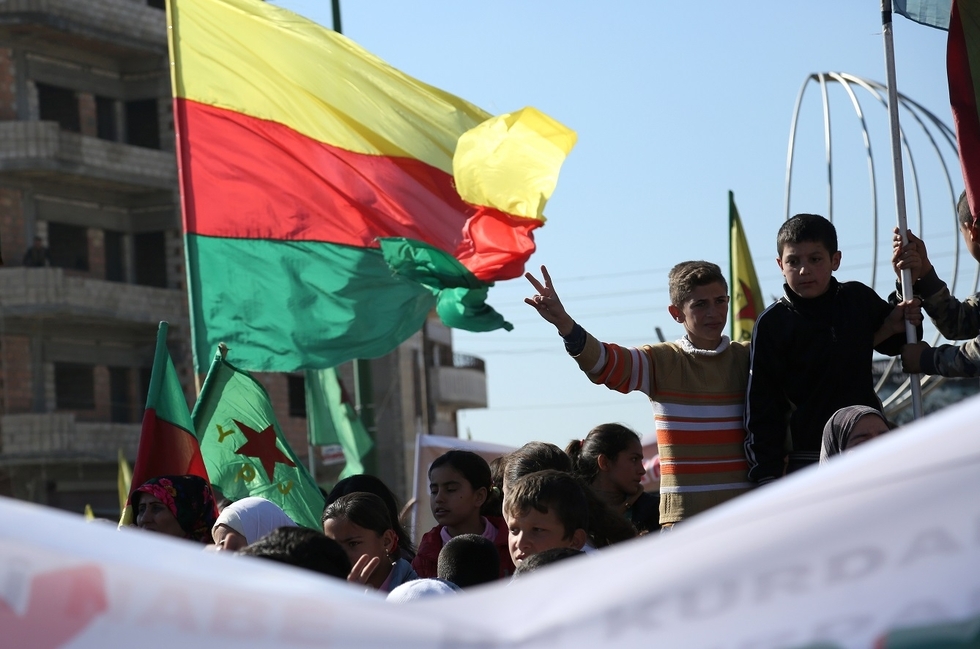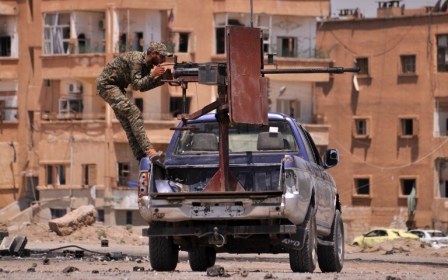Syrian Kurds declare new federation in bid for recognition

Syrian Kurds have declared a "Federation of Northern Syria" that unites three Kurdish majority areas into one entity, in an announcement swiftly denounced by the Syrian government, opposistion and regional powers.
According to Kurdish Democratic Union Party (PYD) official Idris Nassan, the plan will involve "areas of democratic self-administration" under the federal banner, encompassing all ethnic and religious groups living in the area.
Translation: Rojava and northern Syria Federation system founding document was adopted by the constituent assembly.
Two officials at talks involving Kurdish, Arab, and other parties in the town of Rmeilan told the AFP news agency that delegates had agreed a "federal system" unifying the three mainly Kurdish cantons in northern Syria.
According to the pro-Kurdish Firat News Agency (ANF), the “Rojava and Northern Syria Unied Democratic System Document Text” was approved after a vote from 200 delegates, which included Arab, Kurdish, Armenian, Turkmen, Chechen, Syriac and other ethnic groups.
The boundaries of the federalised region have yet to be established, according to a delegate to the talks on Twitter.
The Syrian government and members of the opposition said they rejected the declaration.
Citing a foreign ministry official, Syria's state news agency SANA said the declaration "has no legal basis" and would "encroach on Syria's territorial unity".
The opposition National Coalition meanwhile warned against "any attempt to form entities, regions, or administrations that usurp the will of the Syrian people".
A Turkish official was quoted by Sky News Arabia as saying his county would "not accept the establishment entities based on ethnic lines in northern Syria".
The US has also previously stated it would not recognise a declaration of autonomy in northern Syria.
Despite US disapproval over Kurdish autonomy in Syria, US Defense Secretary Ashton Carter on Thursday praised the fighting of Kurdish groups fighting IS in Syria.
The Kurds "have proven to be excellent partners of ours on the ground in fighting ISIL," Carter said, using a term for IS in testimony before the Senate Armed Services Committee.
"We are grateful for that, and we intend to continue to do that, recognizing the complexities of their regional role."
Though many have accused Syria's Kurds of attempting to establish an independent Kurdistan in northern Syria, the PYD has repeatedly stated its opposition to such a move, claiming it favours a policy of "Democratic Confederalism", an ideology formed by Abdullah Ocalan - the imprisoned leader of the Kurdistan Workers Party (PKK) - after publicly rejecting the original Marxist-Leninist roots of the PKK.
A draft of the federalism proposal document seen by Middle East Eye set out the plans for the new entity in northern Syria.
“The era of nation states is over," read the document, signed by the preparatory commission. "Now we are in the era of democratic society – it is time to form democratic states and unions.”
It added that each canton would be able to “take and implement its own decisions, as long as they do not contradict” rulings from the central power.
It also said that representatives of each canton will be subject to annual scrutiny by the people who elected them. Water and energy will be communally owned – exploitation of capital and monopolies will be rejected.
Thirty-three members of an executive committee to organise a constitution for the region are to be elected. According to activists on social media, two co-chairmen - one Arab, one Kurd - have already been elected for the committee.
Stay informed with MEE's newsletters
Sign up to get the latest alerts, insights and analysis, starting with Turkey Unpacked
Middle East Eye delivers independent and unrivalled coverage and analysis of the Middle East, North Africa and beyond. To learn more about republishing this content and the associated fees, please fill out this form. More about MEE can be found here.




